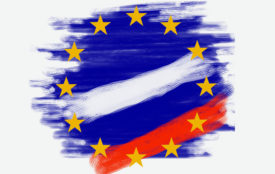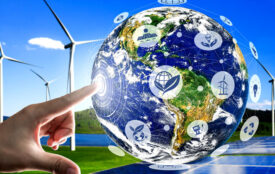G20 science academies recommend measures for a sustainable economy
The United Nations’ (UN) Agenda 2030 sets out clear objectives for a globally sustainable society. Scientific knowledge plays an important role in this transformation.
In advance of the G20 Summit on 18 and 19 November 2024 in Rio de Janeiro/Brazil, the G20 science academies (Science20), including the German National Academy of Sciences Leopoldina, have published the joint statement “Science for Global Transformation”. In the statement the academies recommend specific measures to advance the UN’s Sustainable Development Goals in areas including energy transition, artificial intelligence, bioeconomy, health, and social justice.
“Basic research and scientific innovation can help foster sustainable and resilient societies. International cooperation is particularly important for dealing with global challenges such as climate change and AI,” says Professor (ETHZ) Dr Gerald Haug, President of the German National Academy of Sciences Leopoldina. “A particular success is the inclusion of a CO₂ price in the measures recommended by the academies, as this is an important market-based tool to help reduce emissions. An affordable and clean energy system remains the foundation for a sustainable economy. We can see that science already offers numerous solutions in this area, such as innovative forms of electricity generation from renewable sources, the development of effective means of energy storage, as well as carbon capture and storage technologies.”
In their statement, the science academies of the 20 leading industrialised and emerging countries stress the need for low-emission forms of energy such as solar and wind energy. Recommended measures to help achieve climate neutrality include the use of biofuels, sustainable hydrogen, energy storage, and establishing closed-loop recycling processes for the materials used in sustainable energy systems. The G20 science academies also voice their support for the introduction of market-based controlling instruments such as a global CO₂ price.
The statement emphasises that the potential offered by artificial intelligence should be used, but also stresses the importance of creating international framework conditions for this technology. All nations should use AI in a fair and transparent manner. Investment in data infrastructure and high-performance computing centres is also necessary. Furthermore, it is important to enable citizens to make informed decisions about AI and are aware of its potential, limits, and possible risks.
Bioeconomy has the potential to reconcile economic growth and environmental protection. The science academies’ statement explains how investments in research and infrastructure for a sustainable bioeconomy, as well as international cooperation and the integration of local knowledge can help humanity deal with the challenges posed by climate change, loss of biodiversity, as well as challenges relating to poverty and health.
The statement also contains recommendations on health and social justice, for example the One Health approach that takes an integrated, unifying view of the health of humans, animals, and ecosystems. In addition to global access to vaccinations, global information exchange, health monitoring, and the development of antimicrobial substances and measures to tackle antimicrobial resistance (AMR), the statement also urges greater focus on mental illnesses, as mental health still receives insufficient attention in many countries. The statement was prepared under the leadership of the Brazilian Academy of Sciences (Academia Brasileira de Ciências) and with the participation of Leopoldina members. On Tuesday, 30 July 2024 the Brazilian Academy of Sciences officially presented the statement to the Brazilian G20 Presidency
The Leaders’ Summit of the 20 major industrialised and emerging countries (G20) in Rio de Janeiro/Brazil on 18 and 19 November 2024 is the eighth summit to which the scientific community is contributing through the dialogue forum “Science20”. The scientific advice process was launched for the G20 summit in 2017 as part of the German G20 Presidency. Under the leadership of the Leopoldina, the national science academies of the G20 states developed recommendations to improve global health. The G7 summits have also been accompanied by the science academies for more than ten years.








